I would like to congratulate the Government of Rwanda, through the Ministry of Health, especially you Minister of Health, for the exceptional leadership in effectively containing the very first Marburg virus disease outbreak in Rwanda. Your decisive actions, unwavering commitment, and rapid response were instrumental in preventing widespread negative impact and safeguarding lives. This remarkable achievement underscores Rwanda’s strong health system, resilience and dedication to protecting public health.
Today, we gather to mark this milestone — the official declaration of the end of the Marburg outbreak in Rwanda. It is a testament to the spirit of the Rwandan people, the strength of the country leadership, the bravery of its healthcare workers, and the transformative power of collaboration and partnership.
During the outbreak, WHO deployed approximately 20 of the world’s leading experts on filoviruses (Ebola and Marburg) on a rotating basis from regional and headquarters levels, alongside the entire country office team. Additionally, WHO mobilized 39 health experts from the AVoHC-SURGE cohort hailing from Uganda, Liberia and Sierra Leone. This marked the largest deployment of first responders ever. This effort was in response to a request from you Honourable Minister to address gaps in intensive care units and emergency care, as the outbreak severely impacted health workers. This deployment demonstrated the solidarity among member states in the region. I would like to take this opportunity to extend our gratitude to the Bill & Melinda Gates Foundation and the UK Foreign, Commonwealth and Development Office (FCDO) for funding the AVoHC-SURGE initiative, an investment that is bearing results.
We have been honoured as WHO to have been able to work very closely with a wide range of partners to support government in this response. As partners, we were able to coordinate ourselves, under government leadership, and effectively and efficiently respond to national needs. Together, we elevated our partnership, strengthening our shared commitment to health security in supporting the government of Rwanda. I would like to thank the US Government, the European Union and the British Government for funding support to WHO in the response. I would also like to thank fellow UN agencies, Africa CDC, together with the Governments of Liberia, Uganda, and Sierra Leone, the Global Outbreak Alert and Response network (GOARN) collaborators, bilateral partners, multilateral partners, international NGOs, and all other partners and individuals who contributed to this effort.
On behalf of WHO and all development partners, we are proud to have worked hand-in-hand with the Government of Rwanda and contributed to the achievement of this remarkable milestone in the Marburg outbreak response. Through decisive case management and a comprehensive strategy, loss of life was significantly reduced, and community transmission was stopped. With case fatality rates (CFR) for Marburg outbreaks the world over known to range from 24% to 88%, Rwanda’s 22.7% CFR has set a new regional benchmark for managing filovirus outbreaks.
The outbreak underscored the need to strengthen International Health Regulations (IHR) capacities, which are fundamental to building robust health systems capable of responding effectively to future public health threats. WHO remains committed to continue partnering with the Government of Rwanda to enhance these capacities, ensuring the country is well-prepared for any emerging challenges. Furthermore, the outbreak highlighted the importance of the One Health approach, which recognizes the interconnectedness of human, animal, and environmental health. By integrating efforts across sectors, we can more efficiently prevent, detect, and respond to health threats. One Health is not just a strategic framework; it is an essential approach in a world where health threats know no boundaries.
We look forward to the after-action review that is being planned by Ministry of Health with WHO and other partners that will document the response and the lessons learnt, including the importance of preparedness and early detection.
To the health workers, community leaders, and all those who contributed, we express our deepest gratitude. Your dedication, resilience, and courage were the backbone of this response. To colleagues who made the ultimate sacrifice, your bravery and selflessness will never be forgotten. Your legacy lives on in the lives saved and in the stronger health system we are building together. You are the true heroes, and your spirit will continue to guide us forward.
As we close this chapter and look ahead, may the holiday season bring you joy, peace, and the rest needed to recharge. As we celebrate, let us enter the new year with renewed hope, strength, and a unified resolve to building a healthier, safer world for all.

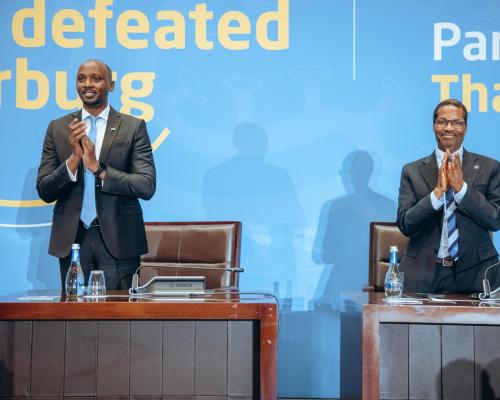
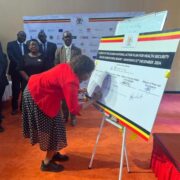
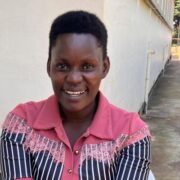
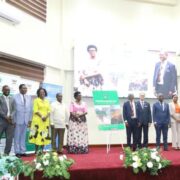

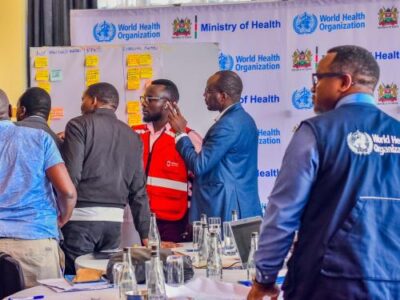
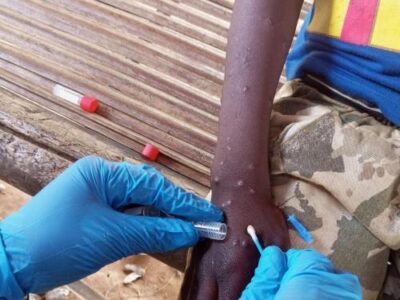



Comments